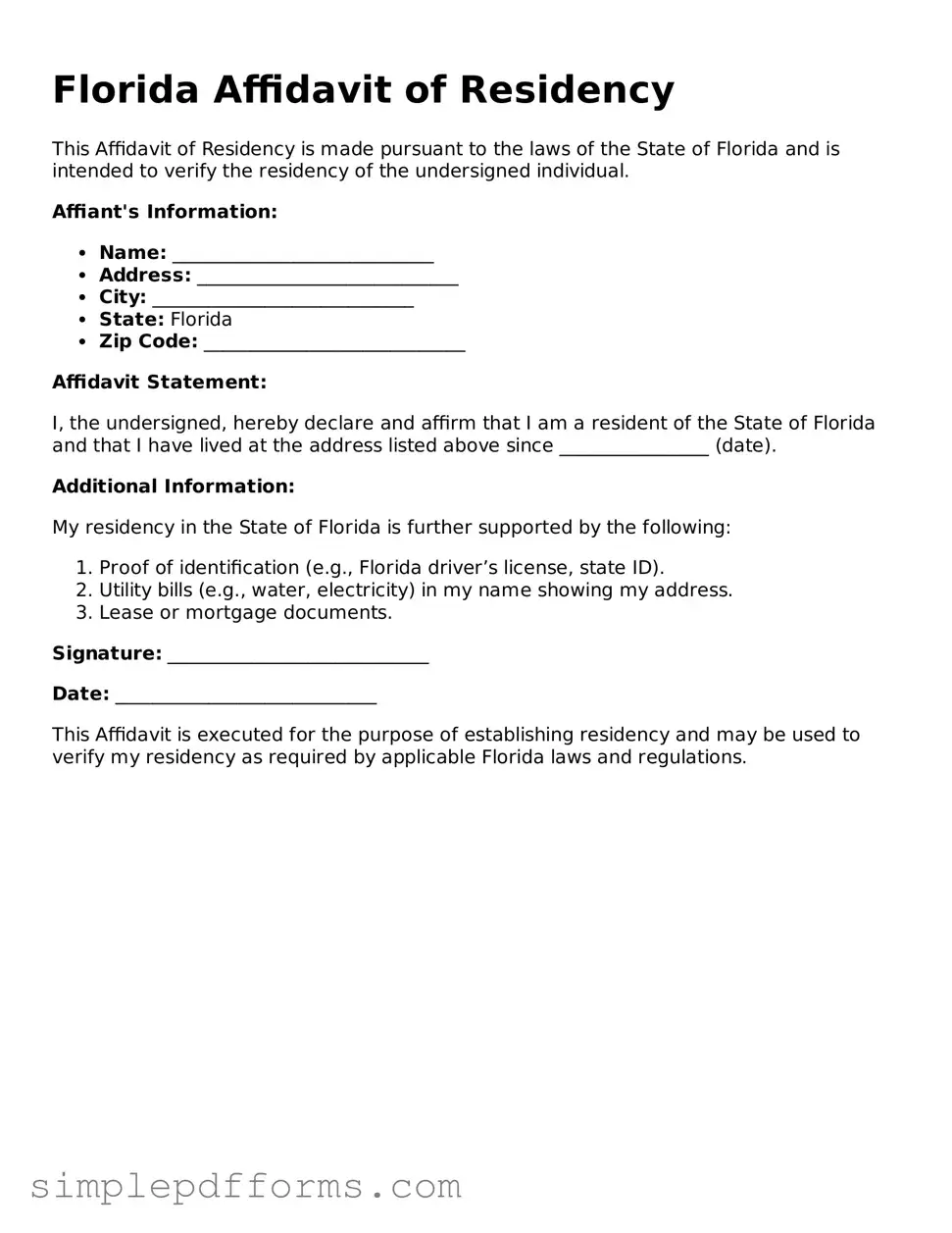Attorney-Verified Affidavit of Residency Document for Florida State
The Florida Affidavit of Residency form is a legal document used to verify an individual's residence in Florida. This affidavit serves various purposes, including establishing residency for educational, legal, or governmental matters. Understanding its requirements and implications is crucial for anyone looking to affirm their residency status in the state.
Open Affidavit of Residency Editor Now

Attorney-Verified Affidavit of Residency Document for Florida State
Open Affidavit of Residency Editor Now

Open Affidavit of Residency Editor Now
or
Get Affidavit of Residency PDF Form
Your form is waiting for completion
Complete Affidavit of Residency online in minutes with ease.